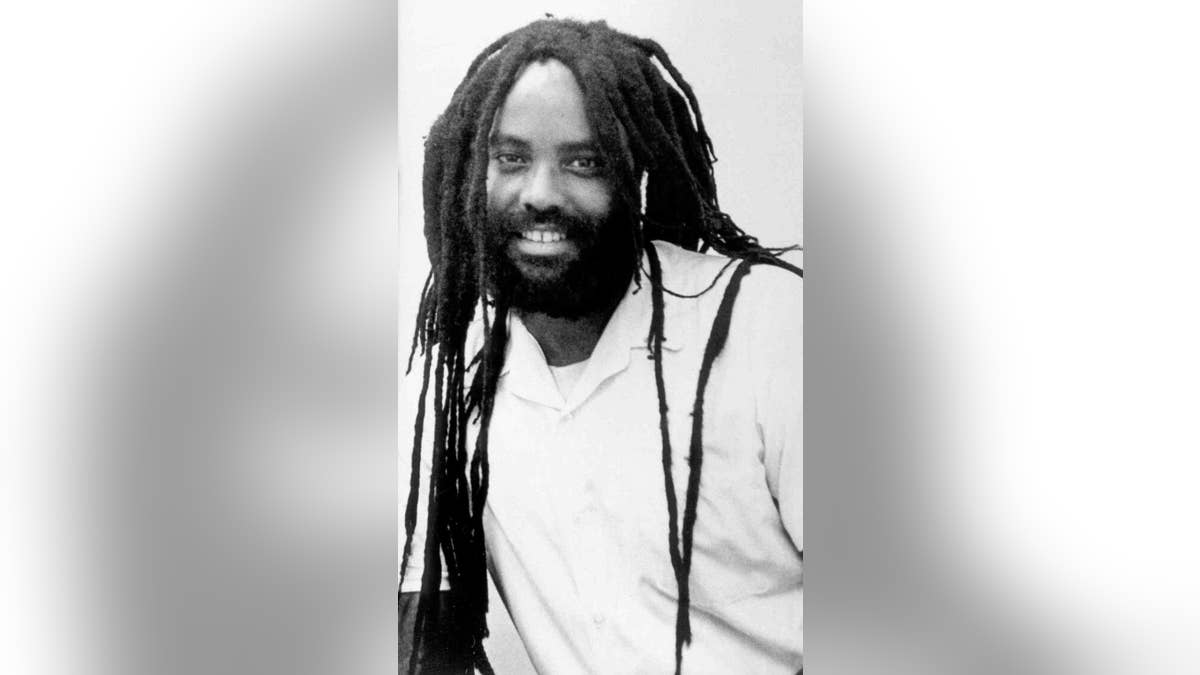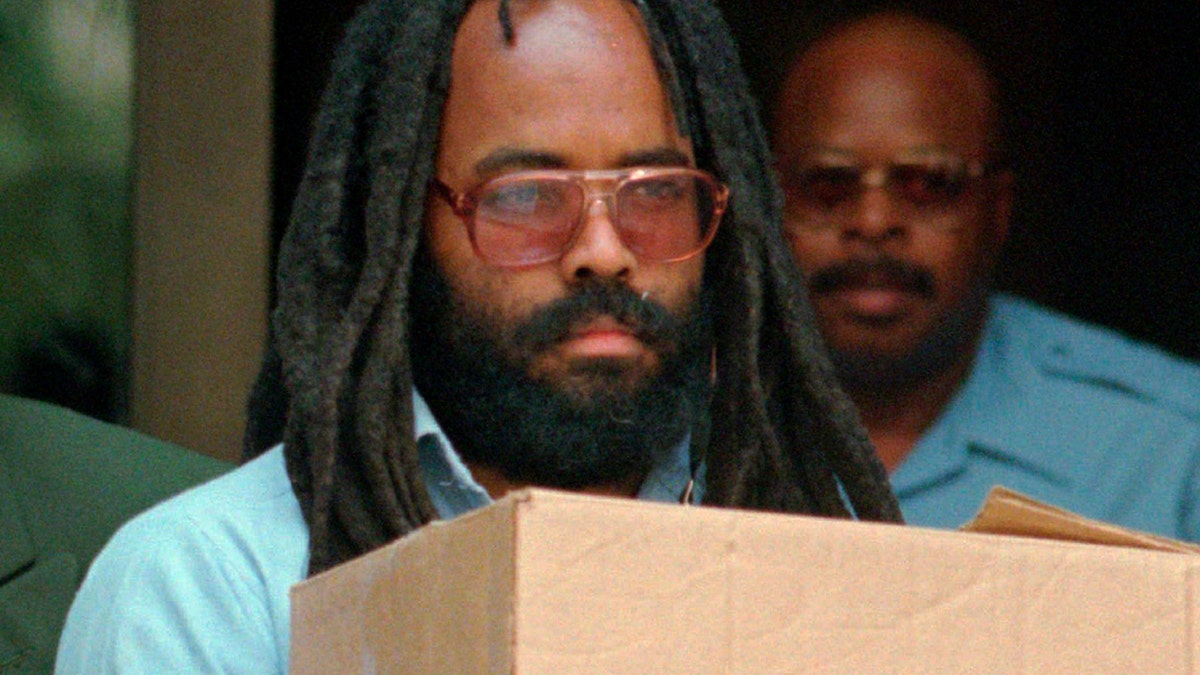Brown University faces backlash over cop killer's art: 'Angry, outraged and disgusted'
Maureen Faulkner, widow of Philadelphia police officer Daniel Faulkner, weighs in on Brown University acquiring Mumia Abu-Jamal's artwork.
Slain officer's widow Maureen Faulkner voiced outrage on "Fox & Friends First" early Tuesday after learning that Brown University acquired the artwork of her husband's killer for a collection dedicated to the voices of the mass incarcerated.
Faulkner, whose husband Daniel was gunned down by Mumia Abu-Jamal in 1981, told Ashley Strohmier she was "outraged" and felt as if she had been "re-victimized" when she heard the news.
"I was 25 years old when my husband was shot in the back, and then he fell to the ground and lost his gun. He did shoot Mumia Abu-Jamal in the stomach, and then Jamal tracked him down and continued to shoot at him," she recalled.
Faulkner went on to say Abu-Jamal fatally shot her husband between the eyes.

An undated file photo of convicted police killer Mumia Abu-Jamal. (AP Photo/Jennifer E. Beach, File)
"This is what the young people at Brown University need to know, that this man caused our family heartache," she added.
Faulkner also voiced outrage over Abu-Jamal's alleged profits, claiming Brown acquired 40 to 60 boxes of his artwork.
PENNSYLVANIA PANEL ADVANCES VICTIM'S RIGHTS BILL AFTER CONVICTED COP KILLER'S COMMENCEMENT SPEECH

Mumia Abu-Jamal leaves Philadelphia's City Hall after a hearing on July 12, 1995. (AP Photo/Chris Gardner, File)
"What about my husband? What about him?" she asked, calling out those asking for Abu-Jamal's release.
"If you want to let him out in society, dig my husband back up and bring him back to life. That's what I have to say to you."
Faulkner vowed to also find out how much money Abu-Jamal received from trusts, saying she is "angry, outraged and disgusted," and plans to reach out to the university for further information.
CLICK HERE TO GET THE FOX NEWS APP
The university announced last week that the works "will anchor a collection at the John Hay Library focused on first-person accounts of incarceration" and will be available to students in 2023.
"The John Hay Library, home to Brown University’s special collections, in partnership with Brown’s Pembroke Center, has acquired a vast set of records, writings and artwork from political activist Mumia Abu-Jamal. A journalist who was convicted of murder and sentenced to death in 1982, Abu-Jamal’s incarceration and sentencing have stirred fierce national debates about racial injustice and the ethics of the death penalty," the announcement read.
"This collection will give scholars a rare chance to peer inside prison walls and understand how incarcerated people live, think and advocate for themselves," said Kenvi Phillips, director of library diversity, equity and inclusion at Brown.
Abu-Jamal received the death penalty after being convicted of Daniel Faulkner's murder in 1982, but the sentence was dismissed years later after a court concluded the death penalty instructions given during the trial were "potentially misleading."
AP contributed to this report.
Editor's Note: This article has been updated to clarify that Brown University acquired Mumia Abu-Jamal’s records, writings and artwork for inclusion in the university’s special collections, and they will be made available to scholars for use in 2023. The university did not publicly display the works.











































